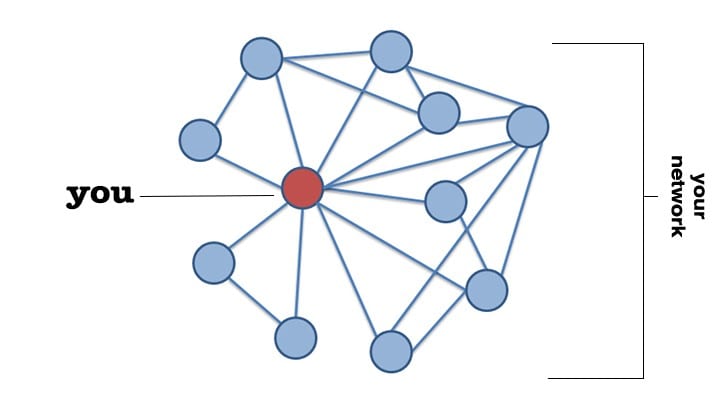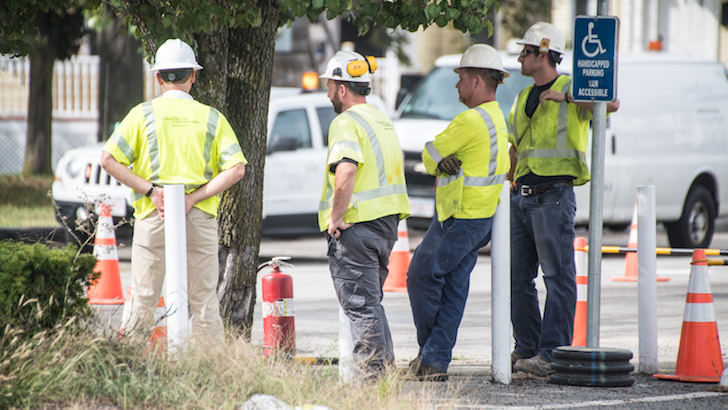
September 12, 2018
BY JASON PRAMAS @JASONPRAMAS
So you’re a first-year undergraduate. You’re in college to cram your head full of knowledge, true. But you’re also there to build your personal network. Because the friends and allies you make while taking courses could very well stay with you for your whole life. And the stronger you build this interlocking web of connections, the better your job prospects (and existence in general) will be. The best way to do that—the most lasting and meaningful way—is to graduate. Everyone who does so has a profound experience in common. A strong bond forged in the fires of a seemingly endless series of term papers, labs (for you scientists), crits (for you artists), and exams. You get through that together, you can do anything… together.
However, to graduate you need to meet the standards of the people who stand between you and your degree of choice: your professors. And it may seem to students new to higher education that the profs hold all the power in the relationships they have with you and your classmates.
Two considerations should mitigate this concern. First, some professors—the best of them—will become part of your network. Help you get jobs, get into grad school, and so on and so forth.
Second, you are living in an era where professors have less power in the academy than they’ve had since the Renaissance (American higher education being based, as it is, on older European models). You see, if you had been a college student in, say, Italy in the 16th century, you (being a rich male, as you would have had to be) would essentially be hiring older (also male, but often pretty broke) scholars to teach you what you wanted to study. The universities of the period were basically groups of students paying groups of professors to teach them. Each group had certain rights and responsibilities, and power on campus was distributed between them.
In the intervening centuries, professors seized more and more control over higher education—culminating in the mid-20th century when they pretty much controlled the academy from top to bottom. Most of them were granted “tenure” by their colleges, guaranteeing them a permanent job in the interest of academic freedom.
Fast-forward to today, and many professors—at least at the undergraduate level—have fallen upon hard times. Over the last half century, American higher education has become more and more corporatized. Colleges today are run like businesses. And many are big businesses indeed. Campus administrations have professionalized. Most key staff are no longer professors, but specialists trained to run universities along capitalist lines.
One important job these administrators have is to keep students relatively happy—while extracting the federally guaranteed student loan money most bring with them. The better to convert them to donors after they graduate and become alumni.
Unsurprisingly, as time has gone on, administrators have sucked up larger and larger portions of college budgets. So, less and less of most schools’ budgets are being spent on professors. Causing faculty power to decline. Thus, in today’s higher ed establishment, a smaller and smaller percentage of professors are tenured faculty with good salaries and lifetime sinecures.
A slightly larger percentage of lower-paid professors are tenure-track faculty spending several years at the mercy of their administrations and tenured colleagues in hope of landing a rare tenured professorship. And the vast majority of faculty are adjuncts—contract professors who, at many institutions, don’t know whether they’re going to have enough courses from semester to semester to pay their rent and keep food on the table. Unless they unionize (a movement that’s spread across public universities in the last quarter century and is gradually taking hold in private ones), the amount of money they get per course can be very low indeed and job security will be nonexistent. Yet even when unionized, adjuncts have trouble making ends meet.
And where does all this leave an enterprising student like yourself? In a bit of a catbird seat, if you know how to manage your profs.
Doing that involves four simple steps. The first three are practical tactics you’ll want to focus on with your most helpful professors. And the fourth is a “nuclear option” you can deploy if you’re unlucky enough to get a bad teacher while completing your undergraduate coursework.
1) Do what your professors ask you to do
If you want to convert your professors from indifferent functionaries to active allies, you’ve got to get their attention. In a good way. And how best to get a prof’s attention? Follow directions carefully. Give them what they ask for in homework assignments, papers, and tests. Don’t go overboard. Good professors understand you have other courses. Just do what they want you to do, the way they want you to do it. Right there that puts you in the top 10 percent of students in a typical undergrad class. Particularly with adjuncts who have very little time to spend with each student, since they need to teach as many courses as possible—sometimes at more than one school—to attempt to make a living wage. The less work you make for professors, the more they will be pleased with you. The more pleased any faculty member is with you, the better your educational experience is going to be.
2) Give your professors good evaluations
Every semester, at most colleges, your administration will ask you to give a fairly comprehensive evaluation of each course you take. This, in effect, allows you to evaluate your professors’ performances. What most students don’t know is that faculty are usually shown the evaluations—minus their students’ names. And what even fewer know is that many faculty members can tell which students gave which evaluations. Meaning they know who trashes them, and who praises them. So, be sure to mention something in your write-up that will help your professors know which eval came from you. Don’t be too glowing in your praise. But be fair. They will be much more likely to become your allies going forward if you are.
3) Help your professors with their careers
Professors, especially adjuncts, are always looking for chances to stand out from the pack. In hopes of getting more secure long-term employment. Or, if they already have tenure or are tenure-track (or at least have a solid union contract), in hopes of getting the types of “gold stars on their foreheads” that lead to better gigs. Those desired promotions come by making administrators like deans and provosts happy. And stuff like winning grants for flashy research projects is exactly the type of thing that makes such top dogs happy in today’s academy. Because it makes them look good to their higher-ups: campus presidents and boards of trustees. Given that, if your professor mentions an opportunity to assist them with some grant writing or research work or preparing for a big conference or whatever—and you can spare some time—help them out. Don’t be a suck-up or teacher’s pet. Don’t jump on every opportunity that presents itself. That can backfire, or become inappropriate in any number of ways. But maybe once a semester do them a solid. That’s the kind of thing that leads to a long-term connection and adds professors to your personal network.
“But surely,” you’re now thinking, “every professor isn’t good.” Isn’t helpful. Some professors are, in fact, obstacles that could stop you from getting your degree and solidifying your all-important personal network of classmates and good faculty.
Correct. In a system of higher education where most professors didn’t get any practice teaching unless they were in the minority of graduate students that decided to be teaching assistants instead of research assistants, bad teachers are an unfortunately common fact of college life.
And here’s where your newfound knowledge of the falling status of professors comes into play.
4) The enemy of your enemy is your friend
If you have a bad professor… and I don’t mean a professor that makes you work for your grades. Those are generally the good ones. I mean if you have a professor who is feral. Arbitrary and capricious in their teaching method and in their treatment of students. Someone who gets off on giving low grades because they think they can do so with impunity. If you get a teacher like that, do not waste too much time complaining to them directly. Nasty professors are inclined to think they’re better than you—even if you make more money working at Starbucks than many of them make as academics. So they’ll tend to ignore your protestations. Better to try a different tack. Remember how administrators have steadily taken control of today’s corporatized academy? And how they want students to be happy? You go complain to them. To the highest level administrators that will sit down with you. In person. And encourage your classmates to do the same. And keep doing it. If enough people complain, and the complaints are legitimate, it will negatively affect problem professors’ careers. To forestall that—and being unable to retaliate since the eyes of the administration are on them—said profs will likely moderate their behavior. And you will have won.
Have a great school year, folks. Study hard, don’t party too much, be decent to your fellow beings, and you’ll be fine.
Jason Pramas is executive editor and associate publisher of DigBoston. He has also been both an adjunct and a “regular” professor at some college or other. And helped organize faculty unions at same. He has degrees and stuff.



